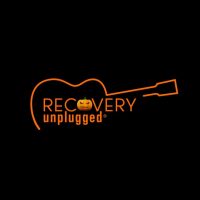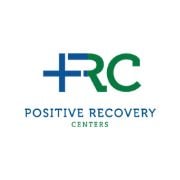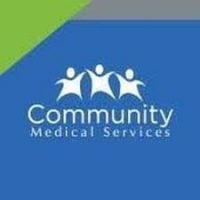Addiction and Psychotherapy Services
Drug Rehab Center in Austin, Texas
Addiction and Psychotherapy Services is a licensed and accredited facility in Austin, TX, providing personalized and holistic addiction treatment services since 1982.
About Addiction and Psychotherapy Services in Texas
Addiction and Psychotherapy Services is an Addiction Treatment Facility located in Austin, Texas. Established in 1982, this facility specializes in providing treatment for individuals suffering from Alcoholism, Opioid Addiction, and Dual Diagnosis. They offer a range of comprehensive services to cater to different needs, including Detox, Outpatient programs, Aftercare Support, Dual-Diagnosis treatment, and Intensive Outpatient Levels of Care. Accredited by esteemed organizations such as JCAHO, SAMHSA, and possessing a State License, Addiction and Psychotherapy Services ensures that their programs meet the highest standards of quality and effectiveness.
In addition to their certifications, Addiction and Psychotherapy Services in Austin, Texas offers a variety of services to help individuals struggling with addiction and substance abuse. Their programs are designed to address the unique needs of each person, promoting holistic healing and recovery. Services provided include detoxification to manage withdrawal symptoms, outpatient programs for ongoing support and therapy, aftercare support to facilitate transition into everyday life, dual-diagnosis treatment for individuals with co-occurring mental health disorders, and intensive outpatient treatment for those requiring more structured care. This facility takes a comprehensive approach to addiction treatment, supporting individuals in their journey towards long-term recovery and improved overall well-being.
Genders
Ages
Modality
Additional
Accreditations
State License
SAMHSA

JCAHO
Conditions and Issues Treated
Opioid addiction has become a significant health problem in the United States. When a person’s life becomes unmanageable because of an opioid addiction, treatment can help them get sober. Treatment includes medical care and counseling.
“With so many people struggling with opioid addiction, we need more care and attention for those who want to quit. Opioid addicts often take opioids when they experience a painful injury – that’s how the cycle starts! When someone begins taking their medication differently than prescribed or takes an excessive amount of drugs, it means they’re hooked on drugs and in danger of overdosing.
The most successful way to beat this is through detoxing from these types treatments at Addiction and Psychotherapy Services in . Most facilities start by using medical support during the process while providing counseling services; rehabilitation comes later on after treatment has been completed successfully.
A “dual diagnosis” is when the individual has two medical issues at the same time. The top co-occurring mental disorders with addiction are depression, anxiety, ADHD, bi-polar disorder. Addiction is also considered a mental illness that is not a choice but rather a medical condition. Addiction can be caused by any number of underlying issues.
Dual diagnosis is provided by Addiction and Psychotherapy Services to treat addictive tendencies as well as any untreated mental illnesses. This ensures successful long term health and recovery for patients after treatment has been completed.
Dual diagnosis is provided by Addiction and Psychotherapy Services to treat addictive tendencies as well as any untreated mental illnesses for people in Texas. This ensures successful long term health and recovery for patients after treatment has been completed.Levels of Care Offered
This center offers a variety of custom treatment tailored to individual recovery. Currently available are Aftercare Support, Detox, Dual-Diagnosis, Intensive Outpatient, Outpatient, with additional therapies available as listed below.
The first level of recovery is detox. It involves giving a person the opportunity to get the toxins out of their body safely. The individual receiving treatment at Addiction and Psychotherapy Services typically will get ill during detox, and they will often start using again to get rid of unpleasant emotions and complicated physical responses. It is why having a Texas medical professional present is so critical. A medical professional can make sure that patients do not start using again during detox and stay physically healthy during the process. They will also have treatment on a mental level to relieve their symptoms and guide them through the process.
Outpatient addiction treatment is beneficial for people who are able to function well in their day-to-day lives. It is recommended for people who are not yet ready to end their relationships with friends or family members who might be encouraging drug and alcohol use.
Intensive outpatient treatment is beneficial for:
- People who are able to attend treatment more than 3 times per week.
- People who do not meet the criteria for inpatient treatment.
- People who are able to contribute to their own recovery outside of the treatment center.
- People who are motivated towards recovery.
- People who are able to overcome addiction on their own without the need for higher levels of care.
Outpatient programs at Addiction and Psychotherapy Services, the Austin resident can live with their family while continuing with their job or studies. Treatment includes educating the patient on drug abuse, medications, and counseling sessions at the individual or group level. Outpatient treatment plans cover diagnosis, detoxification, management, and counseling. They are a popular option for those who have graduated from inpatient facilities.
Without aftercare support, addicts can easily relapse back into addiction. It is crucial to integrate the addict back into society. Aftercare support should take place after outpatient treatment has ended.
There are a few different types of aftercare support that patients can seek after completing an inpatient treatment program:
- 12 Step Self-help groups (AA, NA)
- Therapeutic communities,
- Long-term, structured sober living arrangements
- Halfway houses (residential treatment centers)
Many different support groups exist for addicts to seek help after treatment. Some are more effective than others, depending on the person’s addiction, background, and other factors.
Therapies & Programs
Individual therapy is a form of counseling where you meet with a trained professional one-on-one. Meeting with a therapist in this setting allows for a personal and trusting relationship to be built. This allows the patient to open up about sensitive or private issues they may not feel comfortable discussing in a group. Individual therapy helps identify the root causes of your addiction, which can help prevent relapse.
Couples therapy for drug addiction is a unique form of therapy that allows family members to work through the emotional issues of their loved one’s addiction together. Family members can support each other while learning how to cope with the addiction and encourage healthy changes. The two will work with a therapist to learn how the addiction affects themselves and the relationship.
Family therapy is often done alongside drug treatment to help addicts stay sober. The goal of family therapy for drug addiction is to create an environment where communication can happen without judgment, hostility, or blame. The therapist will sit with the family so they can learn how to communicate differently and provide new tools for dealing with emotions so that people don’t want to drink or do drugs. It’s important for families to focus on relapse prevention plans during treatment so that if the addict feels like they want to use again, they’ll know what steps they need to take together to prevent it from happening again in the future.
Group therapy sessions are another common addiction recovery service. These group sessions typically involve six to 12 addicts who meet regularly with a trained professional for support and guidance.
During these sessions, the group shares their experiences with one another and provides feedback that can help each member avoid relapse or overcome specific obstacles they are facing in their recovery process. With this type of support and guidance, addicts can feel like they are part of a community that understands their struggles and will help them get through the hard times.
Many people struggling with drug addiction have experienced some form of trauma in their lives. It is crucial that these individuals seek out professional help; otherwise, their drug abuse and addiction will likely continue.
Therapists and counselors at drug treatment centers employ several treatment programs to help people struggling with drug addiction, including trauma therapy. Trauma therapy helps people dealing with addiction by allowing them to confront the traumas of their past and move past them.
It is important to note that trauma therapy should not be confused with PTSD (post-traumatic stress disorder). Rather, it is used to treat the effects of trauma, which are often at the root of addiction.
Cognitive Behavioral Therapy (CBT) focuses on the underlying thoughts and behaviors that caused the problem of addiction in the first place and may cause a relapse. Negative feelings are common in drug abuse disorders, but they can lead to co-occurring disorders if not recognized. CBT involves strategies that help to change the behavior pattern by restructuring negative thoughts into positive ones. It helps to remove these feelings, and it provides long-term benefits. Also, CBT promotes self-awareness and self-control. It can be administered as a monotherapy or as part of combination therapy.
CBT can improve the patient’s mood, reduce drug cravings and boost success rates on treatment plans. Regular practice can help individuals handle negative attitudes, thoughts, and feelings without turning to drugs or alcohol. The core belief of Cognitive Behavioral Therapy (CBT) is that one’s moods, behaviors, and actions are all connected. Individuals can improve their quality of life using CBT. It helps addicts understand the patterns of thought and feelings that cause them to use drugs or alcohol and develop a healthy response.
Eye Movement Desensitization and Reprocessing (EMDR) therapy is a treatment method that helps reduce the impact of traumatic memories on individuals. It involves following a bar of light or watching a therapist’s finger move back and forth. This mimics the eye movements of REM sleep, which allows the brain to reprocess memories. EMDR therapy is combined with behavioral therapies to address the root cause of the problem. This reduces the desire to escape painful memories with drugs.
EMDR can be helpful for people who turn to drugs to escape traumatic events. It is a treatment that reduces the impact these memories have on emotions. Individuals who suffer from negative feelings associated with a traumatic experience can find relief in EMDR therapy. This treatment is combined with behavioral therapies. Patients follow a bar of light throughout the session or watch their therapist’s finger move back and forth. These rapid eye movements reduce feelings of negativity and promote calmness and relaxation. This minimizes the impact traumatic memories have on emotions, reducing the desire to escape painful memories with drugs.
Payment Options Accepted
For specific insurance or payment methods please contact us.
Additional Details
Specifics, location, and helpful extra information.
Austin, Texas 78704 Phone Number(512) 444-5092 Meta DetailsUpdated November 25, 2023
Staff Verified
Addiction and Psychotherapy Services Patient Reviews
There are no reviews yet. Be the first one to write one.
Austin, Texas Addiction Information
Texas is one of the primary hubs for drug smuggling into the country. The border between Texas and Mexico is more than 1,000 miles long. More than 10 million residents use alcohol every year and more than 25% of those are minors. Alcohol and drug use has become so common in Texas that almost 15% of all deaths can be attributed to these substances.
Austin, Texas, has a drug addiction problem that is sadly serious. According to recent statistics, half of the state's overdose deaths occurred in the city of Austin. This means that, on average, there are about 2.5 drug overdose deaths in Austin each day. There are also many sober support groups in Austin to help you stay on track and focus on your recovery goals.
Treatment in Nearby Cities
- Pharr, TX (280.6 mi.)
- College Station, TX (89.2 mi.)
- Freeport, TX (169.2 mi.)
- Uvalde, TX (140.9 mi.)
- Robstown, TX (169.1 mi.)
Centers near Addiction and Psychotherapy Services
The facility name, logo and brand are the property and registered trademarks of Addiction and Psychotherapy Services, and are being used for identification and informational purposes only. Use of these names, logos and brands shall not imply endorsement. RehabNow.org is not affiliated with or sponsored by Addiction and Psychotherapy Services.











